Toshiba Announces BG4 NVMe SSD Series
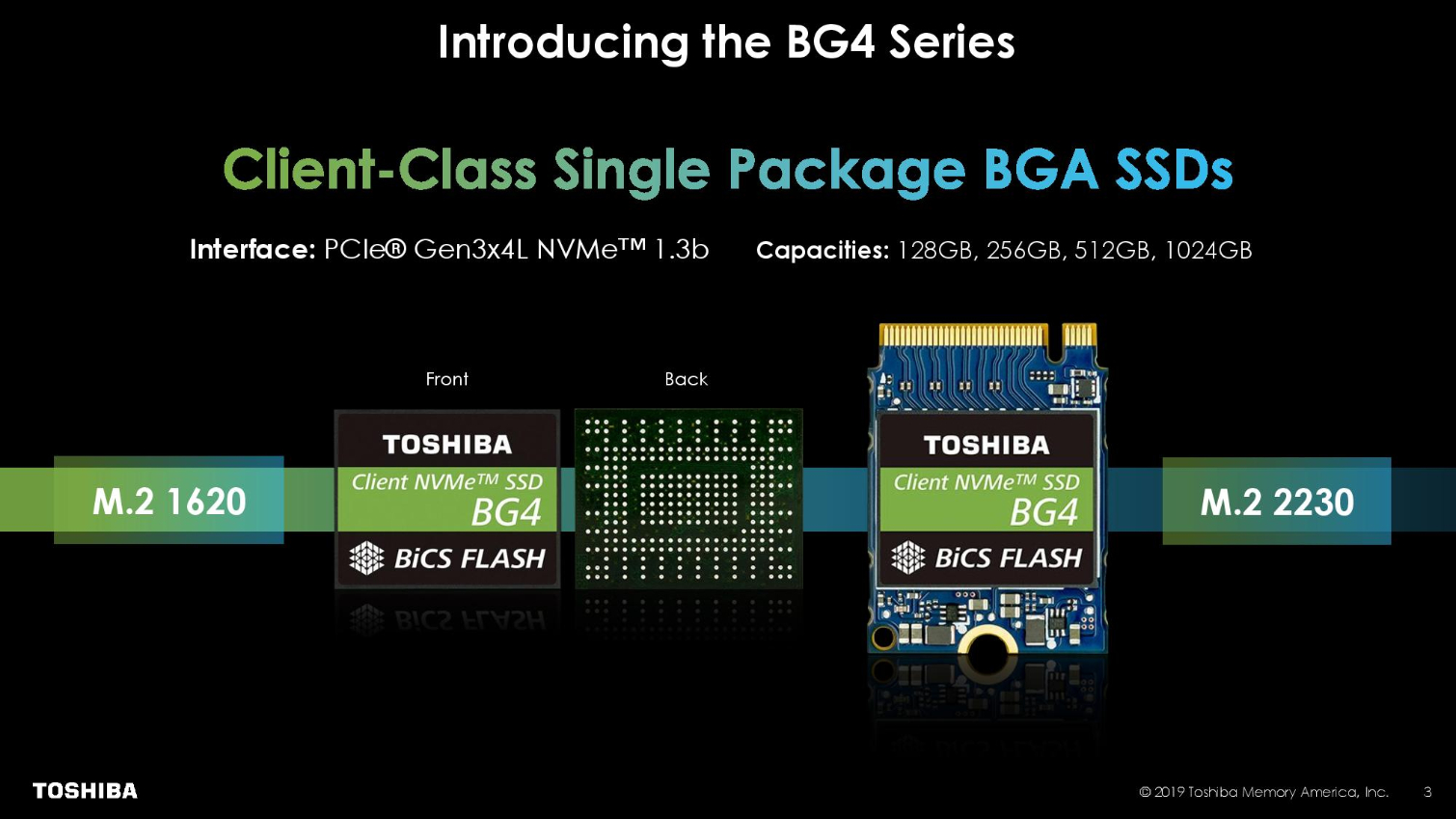
We recently reviewed Toshiba’s latest client SSD, the XG6. With it came the release of 96-Layer TLC BiCS flash which enabled improved performance and power efficiency over the previous XG5, making it a great SSD for system builders. Today marks the release of the fourth generation BGA SSD, the BG4. Just like the XG6, Toshiba’s new BG4 features 96-Layer memory and also a new controller to deliver improved performance and efficiency. Toshiba claims that makes it a perfect fit for ultra-mobile and embedded designs such 2-in-1s and IOT devices.
“When it comes to performance, the BG4 series bests client SATA drives by a factor of up to 4x. Better performance along with its optimized power consumption and compact footprint is why the BG4 SSDs are rapidly replacing SATA SSDs in notebook and desktop PCs.” - Alvaro Toledo Vice President of SSD Marketing and Product Planning at Toshiba Memory America
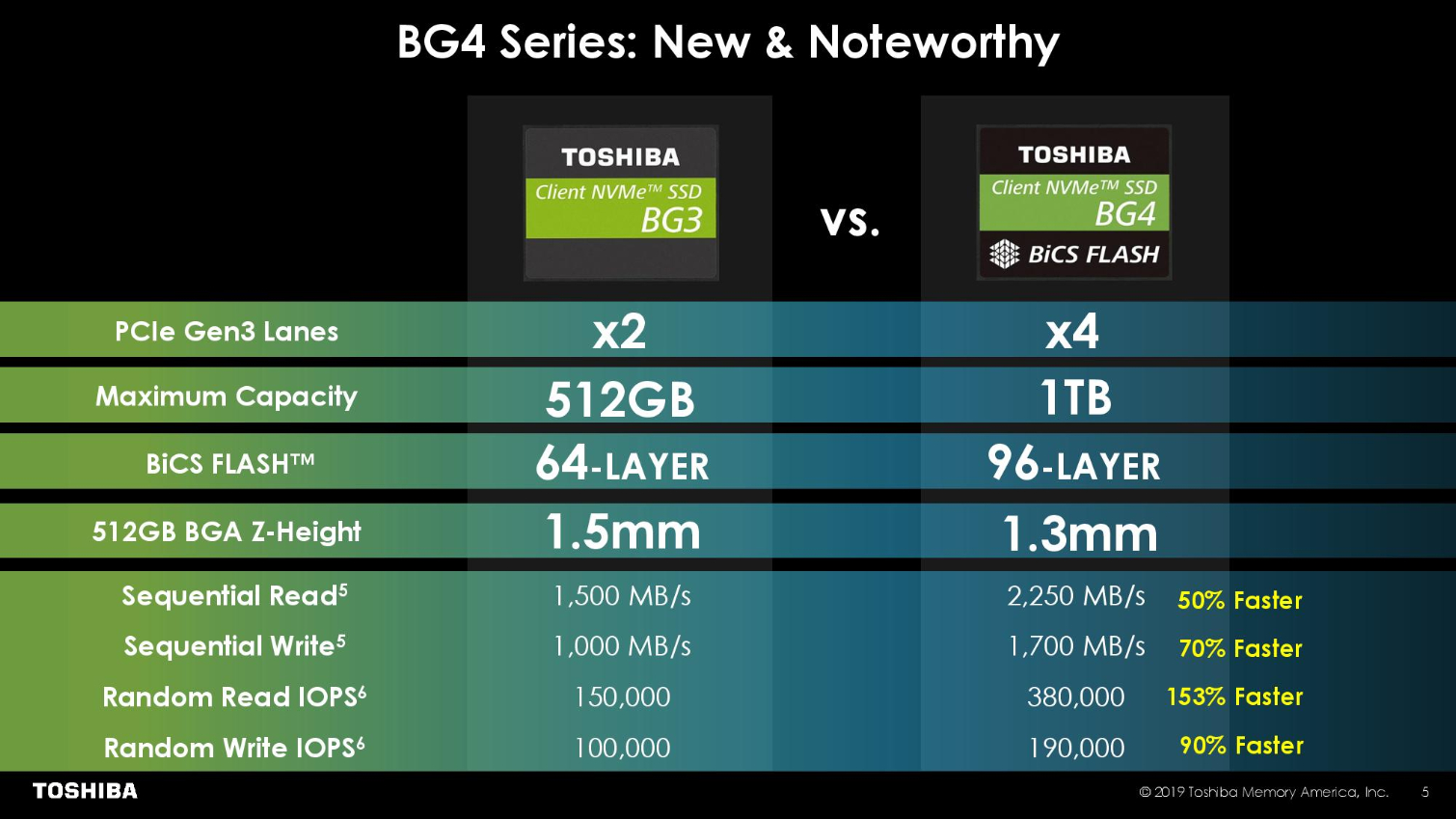
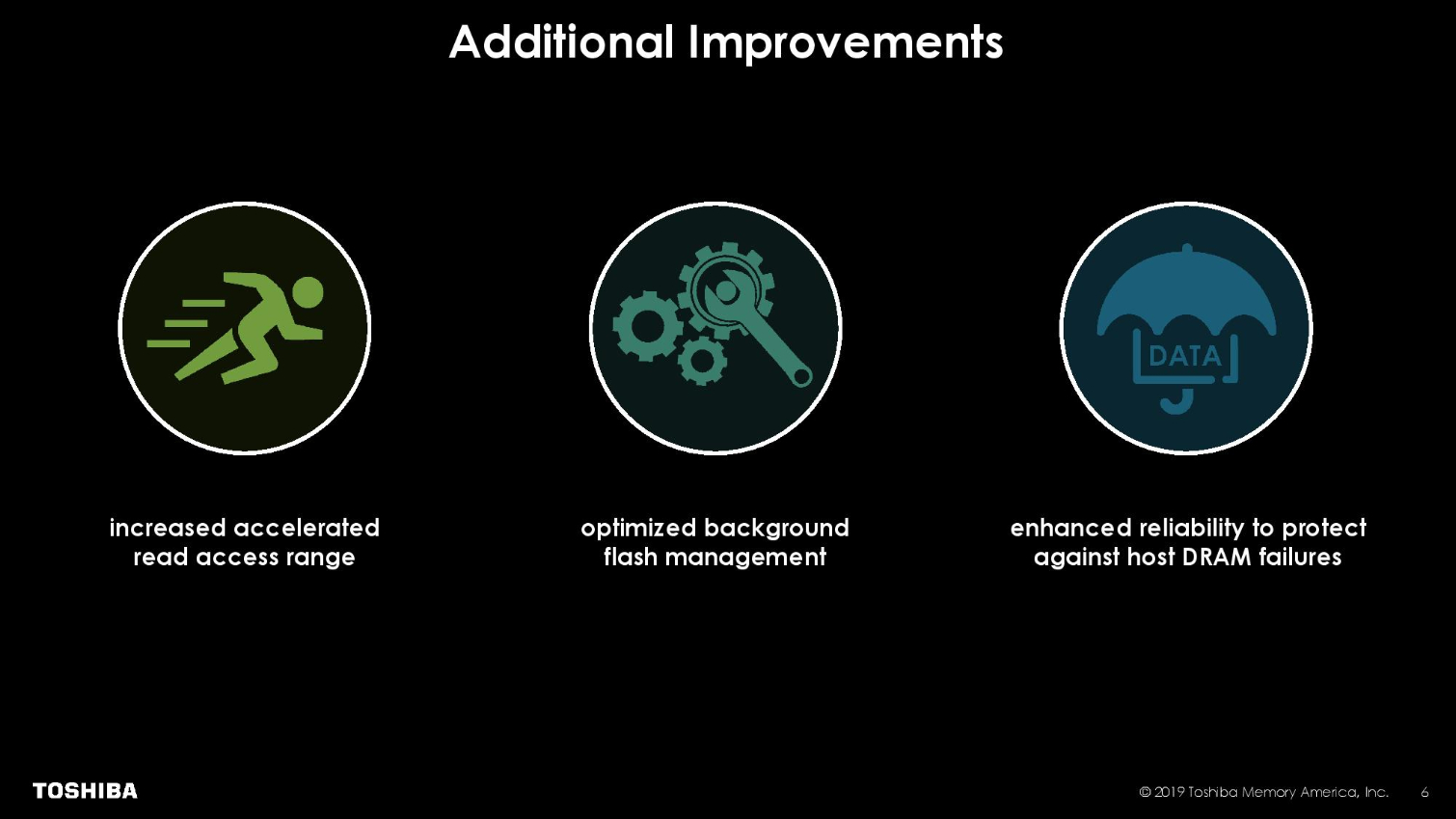
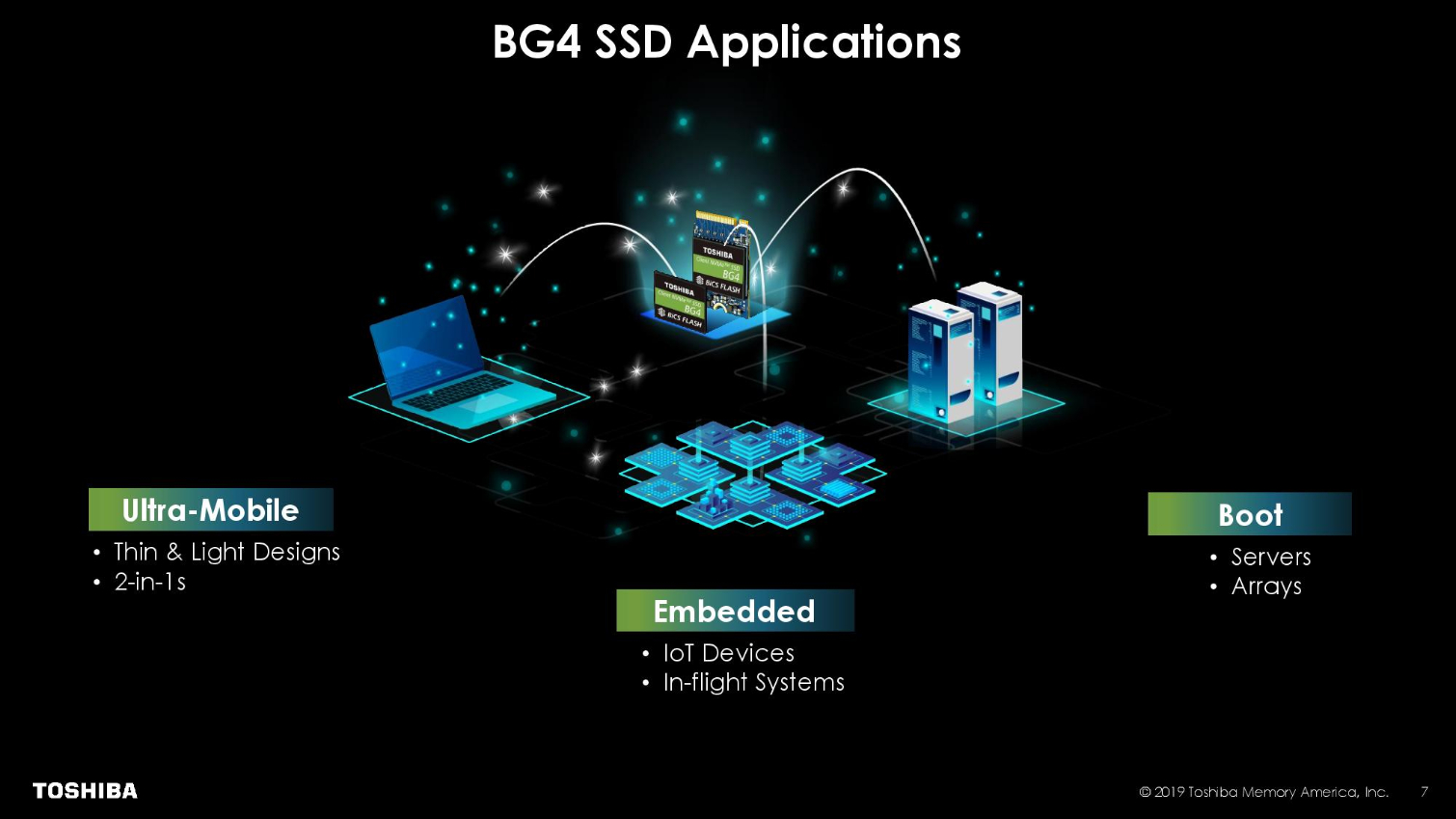
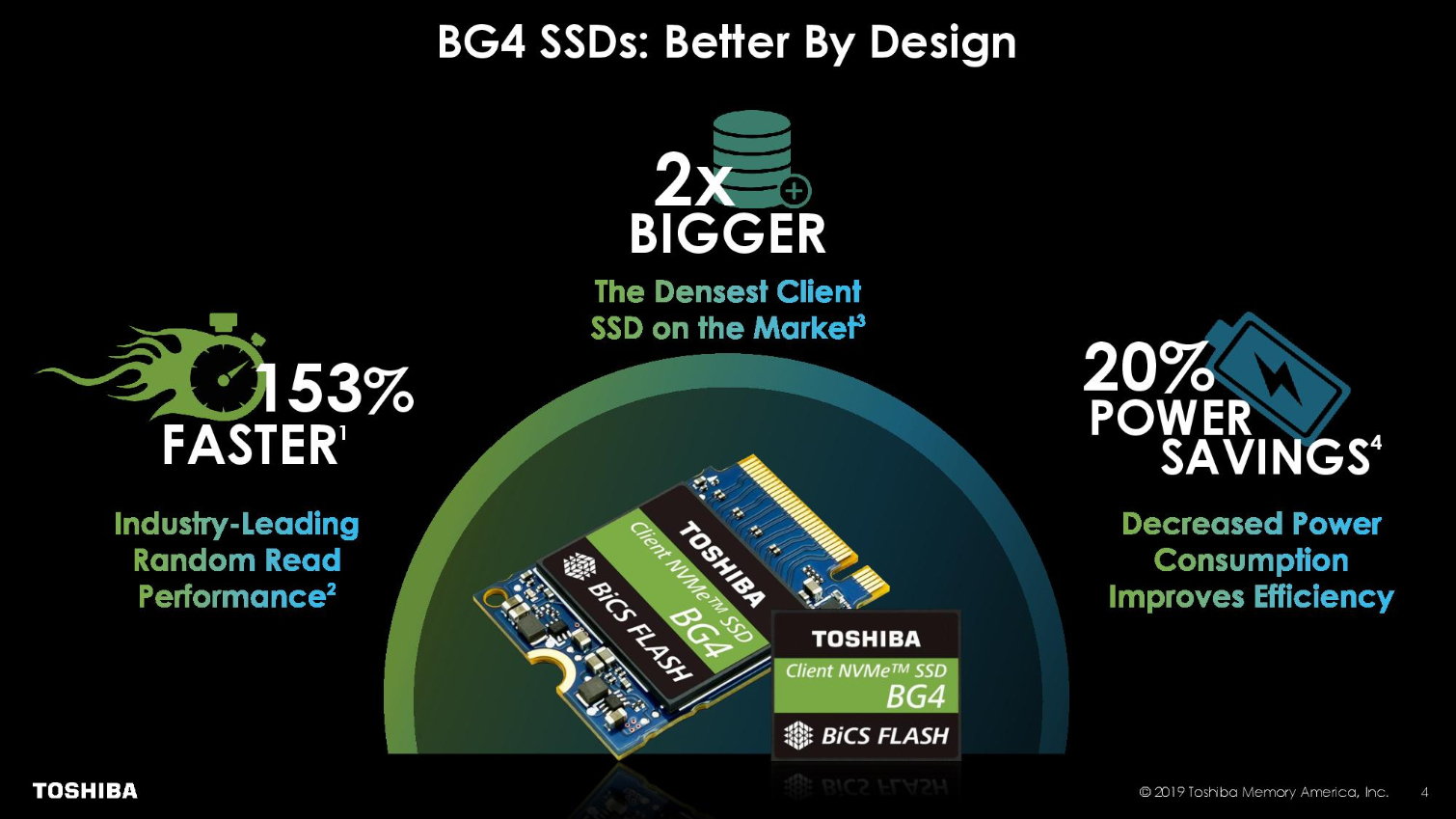
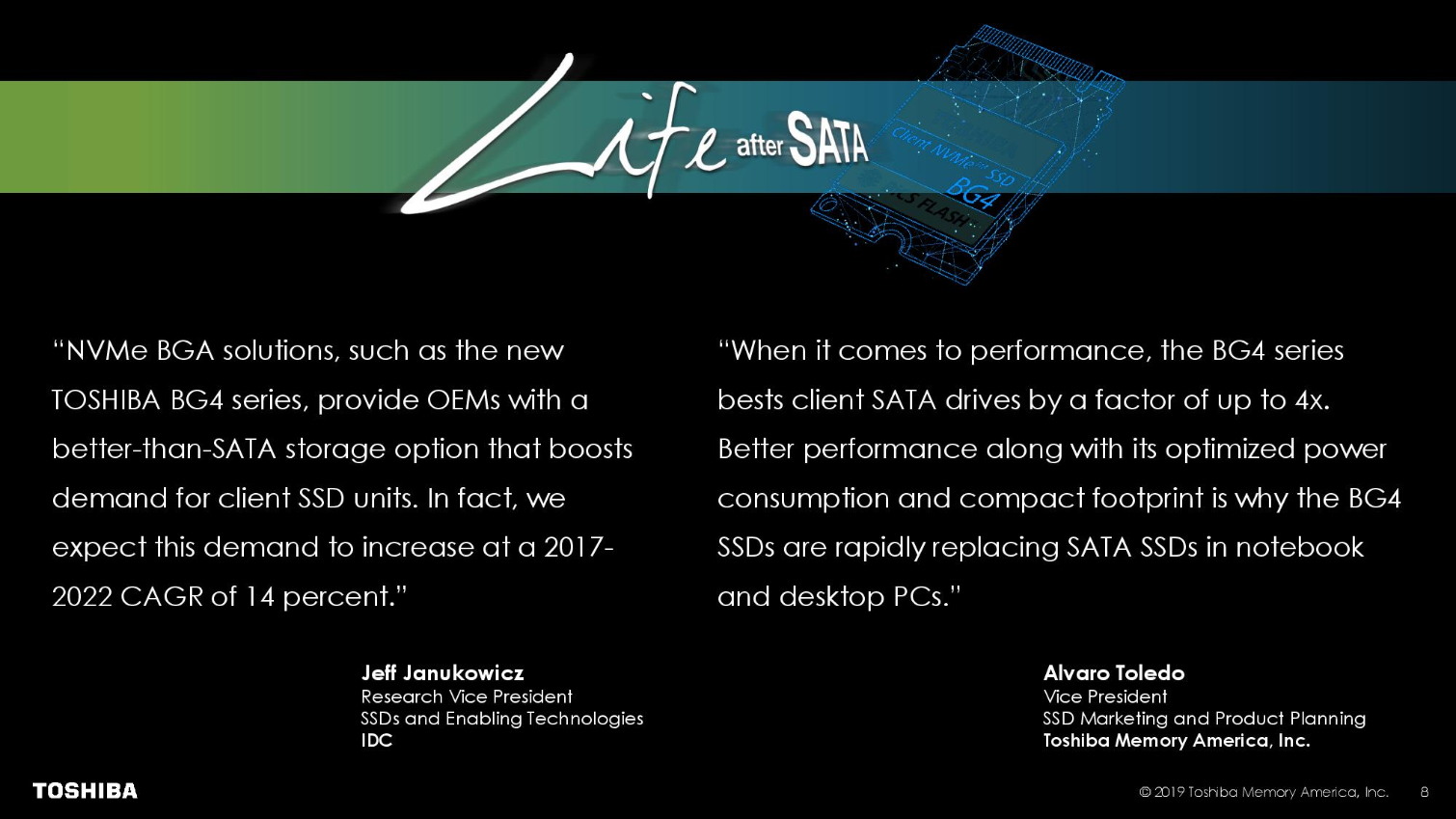
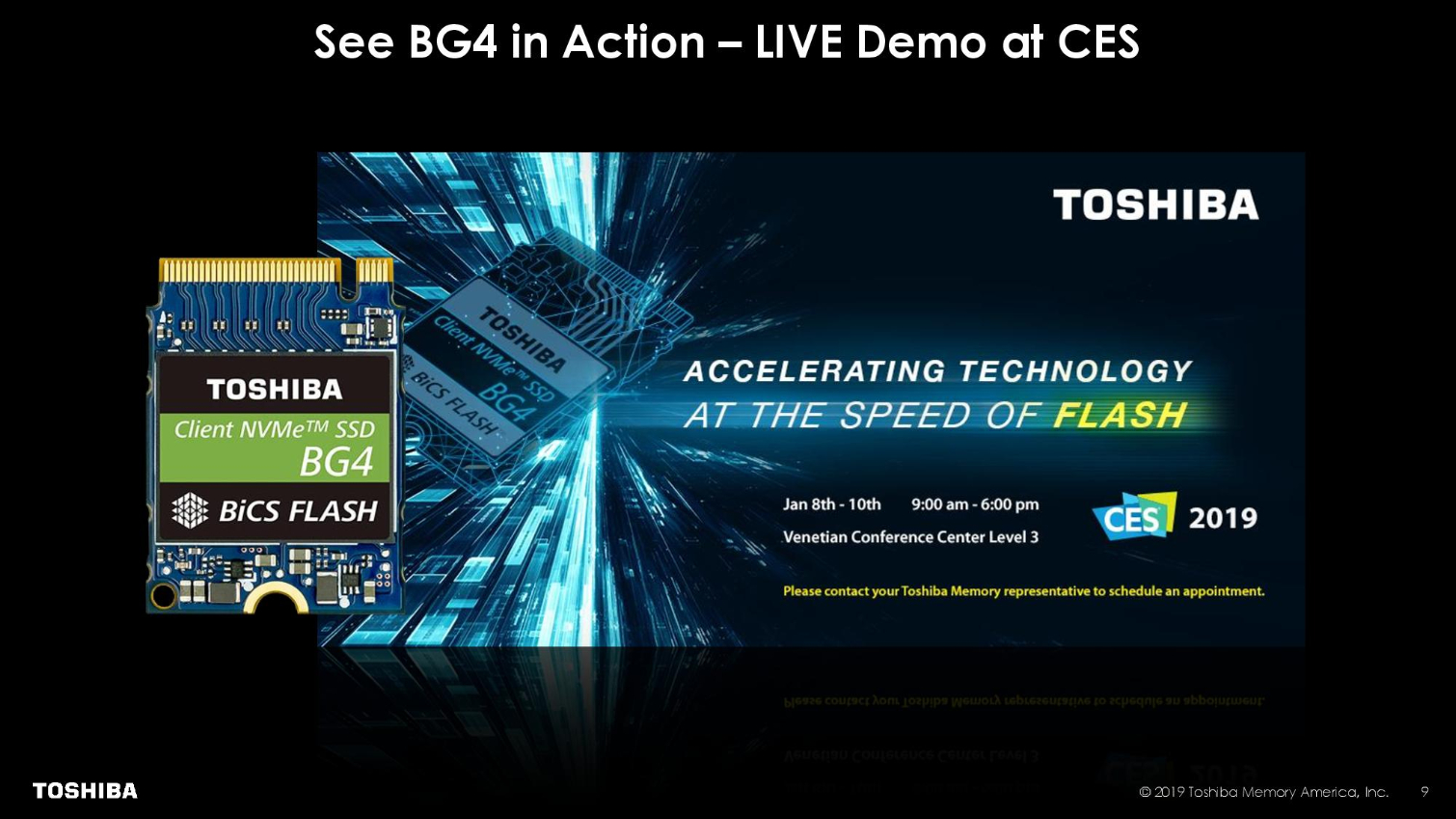
The BG4 uses a new controller that communicates with the host system via the latest NVMe 1.3b protocol. It uses four PCIe lanes rather than just two like most mainstream NVMe SSDs. The added lanes boost performance up to 2,250/1,700 MB/s of read/write throughput. Performance in random workloads has also improved over 150%, up to 380,000/190,000 IOPS read/write.
We would normally expect this type of performance from a larger SSD with onboard DRAM. But instead of a relatively large 2280 form factor, the BG4 is very small. The minuscule SSD comes two form factors: either as a surface-mounted BGA M.2 1620 (16 x 20mm), or a removable M.2 2230 (22 x 30mm) module. The BGA package has a Z-height (thickness) of just 1.3mm for capacities that reach up to 512GB, ad 1.5mm for the 1TB model. Toshiba claims it is the densest client SSD by volumetric measurements.
While it doesn’t utilize a DRAM cache on its own, just like the BG3, it utilizes the NVMe Host Memory Buffer feature to cache the table map on the host system’s RAM. Toshiba has made other improvements to its HMB implementation that include increased accelerated read access ranges, more optimized background flash management, and enhanced reliability features to protect against host DRAM failures.
Compared to BG3 series, the new BG4 SSDs provide up to a 20% improvement in power efficiency and a low-power state that dips as low as 5mW. Capacities range from 128GB all the way up to 1TB SSDs that are currently sampling to select OEMs. General availability is expected in Q2 of 2019. Pyrite drive (version 1.00) or self-encrypting drive (TCG Opal version 2.01) models are also available. Toshiba says the new SSDs are priced to compete with SATA SSDs but didn't provide specific pricing.
Stay On the Cutting Edge: Get the Tom's Hardware Newsletter
Get Tom's Hardware's best news and in-depth reviews, straight to your inbox.

Sean is a Contributing Editor at Tom’s Hardware US, covering storage hardware.